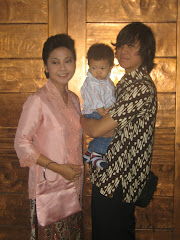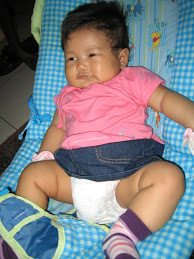
Why some people are quiet and passive, while others are loud, active, and sometimes aggressive? Are certain personality types better adapted for certain job types? When we talk of personality, we don’t mean that a person has charm, a positive attitude toward life, a smiling face, or is friendly and compassionate. When psychologists talk of personality, they mean a dynamic concept of describing the growth and development of a person’s whole psychological system. Personality is not a person’s traits, nor is a person’s characters, nor is a person’s disposition. Rather than looking at parts of a person, personality looks at some aggregate that is greater than the sum of parts.
So personality can be described as: the collective qualities, characteristics, disposition and values of a person which distinguish him or her from others, and which will affect the manners he/she reacts toward or interacts with other people and his /her environment. The dynamic aspect of personality is never finished, but is always in a process of “becoming” something else. The expression “I am” is psychologically wrong; the correct one is “I am becoming …. something else.” We are all born incomplete. Through learning process we make the “possible” to become “actual.” At some point of age a human being may be “incomplete” for the existing environment (his personality may not fit with the environment), but he or she has a lot of potentiality to develop.
A person’s personality should be seen as on-going development process. Our job is to keep the process going; to create an environment that is conducive for learning and acquiring new things. Learning is to avoid “obsolescence” or a process of moving backward. I believe that a considerable portion of all we have learned will be obsolete in five or ten years. Make sure your knowledge is still applicable and relevant with the environment.
What are the determinants in the personality formation? Psychologists used to believe that heredity is very dominant in shaping our personality. Heredity refers to those factors that were determined at conception. Factors that are either completely or substantially influenced by our parents: that is, by their biological, physiological and inherent psychological makeup; factors that are genetically inherited from our parents. Further studies suggest that age, experience, education, training, and environment play equally important role in determining someone’s personality development.
There are many models which can be used to explain and analyze someone’s personality profile. One of them which I would like to address for our discussion is called “Eysenck Personality Inventory”. This model suggests that someone’s personality basically consists of two dimensions, that is: (1) being an extravert or introvert, and (2) being highly emotional or emotionally stable. So, using this approach we could classify people into four types:
- Extravert and highly emotional.
- Extravert and emotionally stable.
- Introvert and highly emotional.
- Introvert and emotionally stable.
Typical extraverts
Sociable, like parties, have many friends, need to have people to talk to and do not like reading or studying by themselves. They crave excitement, take chances, act on the spur of moment and are generally impulsive. They are fond of practical jokes, always have ready answer, and generally like change. They are carefree, easygoing, optimistic, and like to “laugh and be merry”. They prefer to keep moving and doing things, tend to be aggressive and to lose their temper quickly, especially if highly emotional. Their feelings are not kept under tight control, and they are not always reliable person.
Typical introverts
Quiet, retiring sort of person, introspective, fond of books rather than people, Difficult to start a conversation, make few friends but they are the truly ones and the nature of their relationship is in-depth and sincere. Serious, considerate, think first before talking. They tend to plan ahead, “look before they leap”, and distrust the impulse of the moment. They do not like excitement, take matters of everyday life seriously, and like a well-ordered way of life. They keep their feeling under close control, seldom behave in aggressive manner, and do not lose their temper easily. They are reliable, somewhat pessimistic, and place a great value on ethical standards.
Wrong perception on personality
Our perception was that an extravert person under all circumstances was much better than introvert person. This is not necessarily true. Both types have positive and negative qualities. Different job requires different personality type. Different working environment calls for different personality type. There are professions which only fit for introvert individuals; on the other hand there are jobs which are only best performed by extravert people. Even an introvert can occasionally become extravert when the situation demands to be so. In the real world we have as many extravert people as introvert people. So the lesson is: do not worry about being an introvert.














.jpg)









Tidak ada komentar:
Posting Komentar